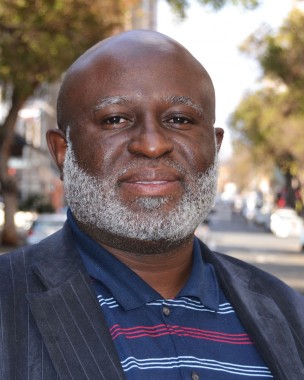
BLANTYRE, Malawi
A human rights lawyer has said that women and girls in Malawi with medical conditions can request access to safe and legal abortions in hospitals.
Speaking recently during the International Safe Abortion Day celebrations organized by the Centre for Solutions Journalism (CSJ) in Chiradzulu, lawyer Mateyu Sisya said the assumption that access to safe abortion is illegal is wrong.
“Despite some restrictions under sections 149, 150, and 151 of the Penal Code, women and girls should know that Section 243 makes an exception that those with medical conditions that put their lives and health in danger can access the services,” he said.
Mateyu told over 100 activists and members of the public that attended the celebrations that the High Court of Malawi reaffirmed the statutory protections for safe and legal abortion under some circumstances.
The High Court, in a ruling it made last year, clarified that despite the existing legal restrictions on abortion, Section 243 offers a window of opportunity to women and girls whose lives and health are in danger.
In the ruling, Justice Mzonde Mvula said women and girls seeking to access abortion in Malawi must present themselves before a doctor and request abortion services based on existing conditions.
The ruling explains that women and girls seeking an abortion should demonstrate to the doctor how a pregnancy would undermine their health and life.
In his reaction to the ruling, lawyer Dr Godfrey Kangaude once observed that while the Penal Code only allows for abortion when the life of the woman or girl is in danger because of the pregnancy, the court also recognized that the preservation of life also entails safeguarding the mental and physical health of the woman or girl.

“This is a good development since current legal provisions on termination of pregnancy are couched in language that makes it difficult for health providers to implement. This ruling is a welcome step towards an authoritative interpretation of the abortion law and opens the door for women and girls to seek lawful access to safe abortion in Malawi,” he said.
He opined that the Ministry of Health should take the initiative to advance necessary legal and policy reforms to address the inconsistencies between the current law and Malawi’s obligations under national and international law on the reproductive rights of women and girls.
Meanwhile, CSJ continues campaigning for the Termination of Pregnancy (TOP) Bill.
During the International Safe Abortion Day celebrations, CSJ Executive Director Penelope Paliani Kamanga said that the government needs to expedite enacting the TOP Bill instead of using an outdated colonial law written in the 1930s.
“The statistics of abortion in Malawi tell a big story. Over 141,000 abortions occur annually in Malawi despite a restrictive law. That tells us that restrictive law is failing to stop women from inducing abortion. The big challenge is that most abortions are unsafe and result in women’s complications and deaths. Therefore, there is a need to address the problem of unsafe abortion through law reform so that Malawi can achieve its ambition of reducing maternal deaths,” she said.
Through the Law Commission, the government drafted a new law on abortion which will come into effect once Parliament passes it. The proposed rule expands the grounds under which women can qualify to access abortion.
The proposed laws say certified health service providers may terminate a pregnancy “if
the continued pregnancy will endanger the life of a pregnant woman and may prevent injury to the physical or mental health of a pregnant woman.
Other grounds for accessing abortion include when there is a severe malformation of the foetus, which will affect its viability or compatibility with life and in cases where the pregnancy is a result of rape, incest or defilement:
Malawi’s enactment of the TOP Bill is not just one of its practical way of addressing the problem of unsafe abortions as part of reducing maternal mortality but also the fulfilment of the African Commission on Human and Peoples’ Rights Protocol which it already signed and ratified.
